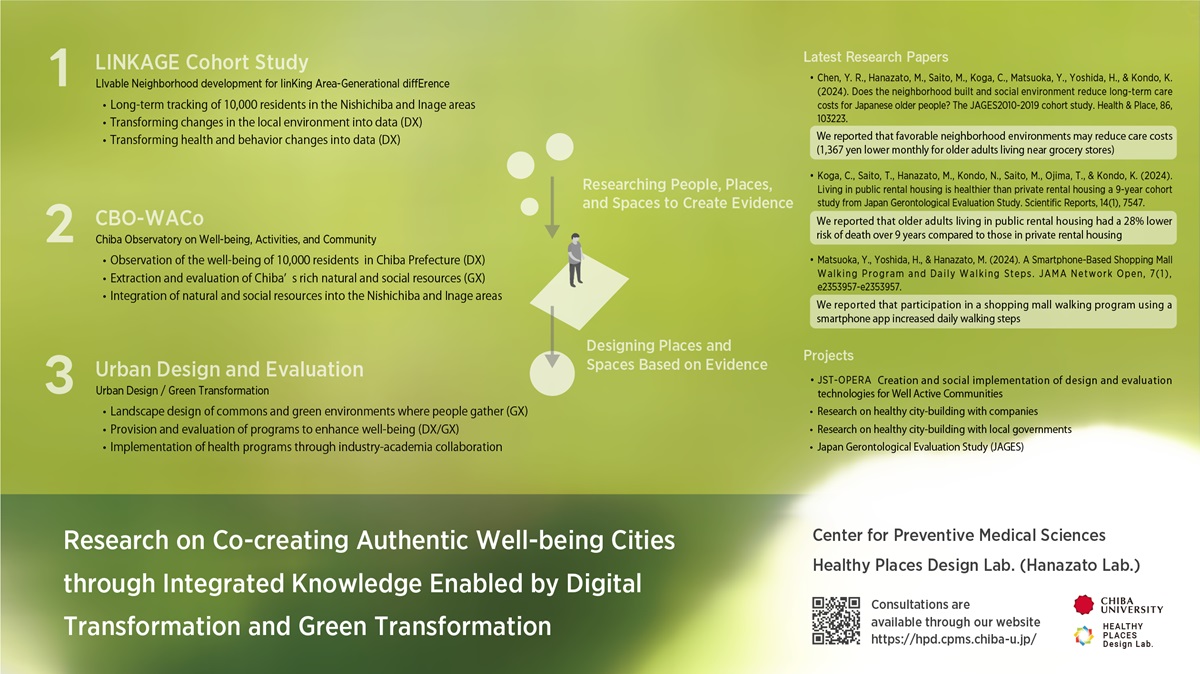Research on Co-creating Authentic Well-being Cities through Integrated Knowledge Enabled by Digital Transformation and Green Transformation

-
- Principal Investigator
Associate Professor / Masamichi HANAZATO
- Affiliation
Center for Preventive Medical Sciences, Chiba University
Researchmap
ORCID ID
- Principal Investigator
In economically advanced nations, where social security costs are rising, maintaining and promoting public health has become a critical issue. Recently, in addition to individual interventions, efforts to improve health through environmental modifications—such as enhancing the built and natural environments—have been advancing both domestically and internationally. Japan's "Health Japan 21" initiative has also included the concept of creating environments that naturally promote health, which has been recognized as important in health promotion efforts nationwide. The COVID-19 pandemic has further increased public interest in outdoor public spaces, leading to urban spatial reorganization in many cities worldwide. However, health and well-being impact assessments of urban development remain limited due to the lengthy development timelines and high research costs, resulting in a lack of comprehensive knowledge.
Additionally, societal interest has increasingly shifted toward global environmental issues such as climate change, nature positivity, biodiversity, and planetary health. Gray infrastructure, developed during periods of rapid economic growth, is being transformed into green infrastructure. During this transitional phase, from low-carbon to carbon-neutral strategies, nature-based lifestyles are also gaining attention.
This study aims to elucidate the effects of natural environments, such as green spaces, and nature-based activities, such as outdoor leisure and gardening, on health and well-being through an epidemiological approach incorporating perspectives from both Digital Transformation (DX) and Green Transformation (GX). Furthermore, the findings will inform proposals and implementation of nature-based urban designs in specific urban development projects. Long-term epidemiological studies targeting residents of these areas will be conducted to assess the impacts of these urban developments, creating a feedback loop for future urban planning.
In this way, by integrating DX and GX, the study promotes a cycle of knowledge between epidemiological research and urban development implementation. This will contribute to the co-creation of cities designed to maximize health and well-being, advancing research toward the realization of truly well-being-centered cities.

